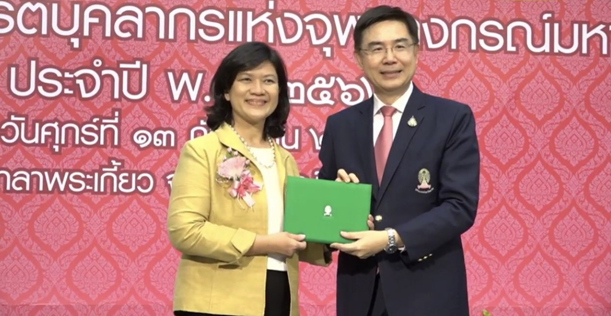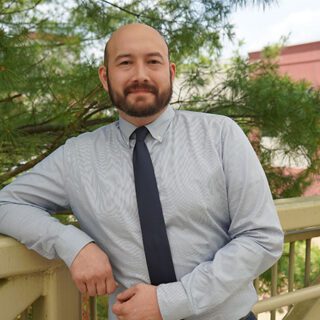
Alumna Receives Award for Top Research Paper in Thailand
Jirada Wudthayagorn credits her professional success in Thailand to her PhD program in foreign language education at the School of Education at the University of Pittsburgh. She says that her doctoral studies at Pitt prepared her to work as an innovator in education in her country in the twenty-first century.
A professor at Chulalongkorn University in Thailand, Wudthayagorn designed, researched, and published an article on the groundbreaking Chulalongkorn University Test of English Proficiency (CU-TEP), which is the first foreign language placement exam of its kind in Thailand. The CU-TEP is used to assess students’ English language proficiency for placement and upon graduation from the university.
In recognition of her creation of the CU-TEP assessment tool, Wudthayagorn was recently presented with the “Outstanding Research Study Beneficial to Society” award by the Rachadapisak Sompoch Endowment Fund of Chulalongkorn University. In her article, published in Learn Journal in 2018, entitled, “Mapping the CU-TEP to the Common European Framework of Reference (CEFR)”, Wudthayagorn outlined her process of test development.
Many in the Thai educational system have found Wudthayagorn’s CU-TEP exam preferable for three reasons. It corresponds to the European test (CEFR), is culturally responsive to Thai students by using test items that are relevant to Thai society, and it comes at no cost to the school.
Until now, Thai universities were required to use the Common European Framework of Reference exam (CEFR) to assess students’ proficiency in English. The CEFR was expensive for schools to purchase and was not culturally sensitive to the experiences of Thai university students. For example, the CEFR includes questions related to European culture, which a Thai audience would not be familiar with. CU-TEP, on the other hand, includes test questions relevant to a Thai audience, related to things like Thai holidays, food, and customs.
Now Thai schools can use Wudthayagorn’s CU-TEP, which was designed for them, and not have to pay the high price of the CEFR.
Wudthayagorn says that foreign language educators around the world can learn from her work. They can follow her approach for designing a locally-made test that can be mapped to an international framework for assessing proficiency in a foreign language.
Wudthayagorn received her PhD in Foreign Language Education from Pitt Education in 2000. While studying at Pitt, she worked with Instruction and Learning faculty member Richard Donato. As a member of the research team, she conducted studies on the learning of Japanese as a foreign language by elementary school students and traced their motivation and engagement over several years of language instruction.
Wudthayagorn says this “learning by doing” approach in her PhD program shaped her professional path. She believes that the various educational resources that the program provided allowed her to develop the skills to think, write, and conduct research, all of which have been essential to her career.
Wudthayagorn maintains that research into foreign language teaching and learning, and the ability for people to understand and speak multiple languages, is one of the most important assets for university graduates today.
“Learning foreign languages expands your horizons of knowledge and shapes your worldview. Understanding others helps us live harmoniously,” she said.
Learn More
- Read Professor Wudthayagorn’s award-winning article, “Mapping the CU-TEP to the Common European Framework of Reference (CEFR).”
- View our Foreign Language Education programs. Applications are now being accepted.




